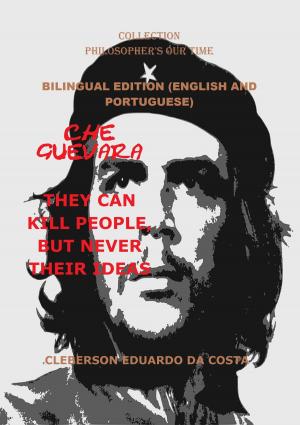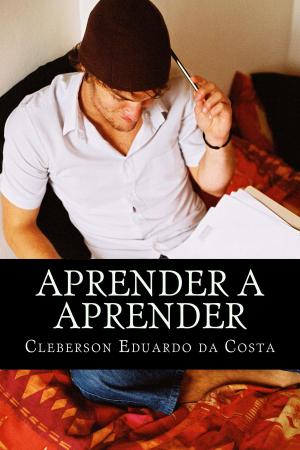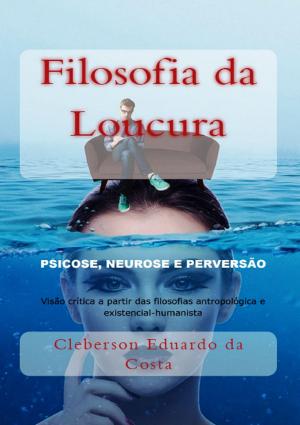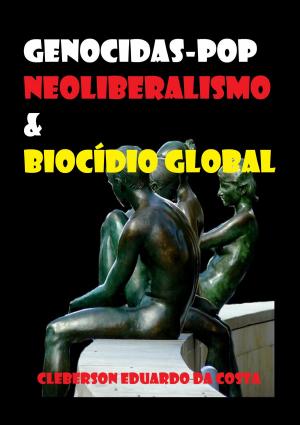THE LION & THE GAZELLE - DIALECTIC OF ENLIGHTENMENT
Nonfiction, Science & Nature, Science, Other Sciences, Philosophy & Social Aspects| Author: | CLEBERSON EDUARDO DA COSTA | ISBN: | 1230000268632 |
| Publisher: | ATSOC EDITIONS | Publication: | September 17, 2014 |
| Imprint: | 1 | Language: | English |
| Author: | CLEBERSON EDUARDO DA COSTA |
| ISBN: | 1230000268632 |
| Publisher: | ATSOC EDITIONS |
| Publication: | September 17, 2014 |
| Imprint: | 1 |
| Language: | English |
(A5, 156 P.) - While Descartes, at its full "I think, therefore I am", advocated, as Plato before had done, the supremacy of the Spirit (IDEA) on the field, Bacon, on the other hand, argued that, in the pursuit of knowledge, we needed to worry about getting rid of idols, false concepts and/or ideas that migrated to our being, for the human spirit, as if they were loved, that is, as human beings that we took in the condition of the possessors of ideas and put on condition of enslaved mere possessed by them (ideas), giving us, however, at the same time, the illusion and/or feeling of being "Hyper aware”.
Later, at the end of the modern era and/or beginning of contemporary art, the clash continues: now, however, between Hegel and Marx and/or vice versa.
The ideas of Hegel are not very different from those of other idealists.
But, those of Karl Marx, were innovative, or better, revolutionary: he, Marx, has created the materialist theory of history and/or better, the so-called dialectical materialism and/or the idea of praxis, which many educators, such as Paulo Freire, to their ways, began after the draw also from pedagogical praxis. Now, but what comes to be the principle Marxist dialectical?
I am not here to explain the thought of Marx, because the same, already explained by itself. In short, what we can say is that he, the principle dialectic, is the same as a kind of "complexity of obvious". That is, by means of its principles it is recommended, among other things, that:
1- The practice and/or material cannot be reduced and/or should not be reduced to theory; and, that:
2- Neither the theory and/or the idea should be reduced to practice.
In other words, there must be a dialectical process.
In other words:
3- There is always a thesis, which, following a process socially dynamic:
4- Give, it is supposed, always rise to an antithesis which, in turn:
5- Will also supposed, in a synthesis, i.e.:
6- A new thesis, until the final course of history, that would be, according to Marx, the so-called "perfect society".
- "It would not be a utopia?"
Know many, however, that for Marx, there is a path, while target, then, but also that this path, unlike that advocate the idealists, it is only by walking. i.e., in the words of Marx himself:
"To be able to transform (the companies and/or our social condition) it is also necessary to be able to become..."
This is the real meaning of this book:
"Can someone become without access to the clarification, without taking a critical conscience and/or without being able to learn how to think, besides only (by means of the so- called institutions of education) learn thoughts in the form of canned knowledge that (as I once wrote us Nietzsche) obstruct our thoughts?"
Hopefully, this book, as well as the tens of works of the author might, in some way, contributing to the formation of a younger generation happy, human, fraternal, respectful of their differences, aware and dominated intellectually.
(A5, 156 P.) - While Descartes, at its full "I think, therefore I am", advocated, as Plato before had done, the supremacy of the Spirit (IDEA) on the field, Bacon, on the other hand, argued that, in the pursuit of knowledge, we needed to worry about getting rid of idols, false concepts and/or ideas that migrated to our being, for the human spirit, as if they were loved, that is, as human beings that we took in the condition of the possessors of ideas and put on condition of enslaved mere possessed by them (ideas), giving us, however, at the same time, the illusion and/or feeling of being "Hyper aware”.
Later, at the end of the modern era and/or beginning of contemporary art, the clash continues: now, however, between Hegel and Marx and/or vice versa.
The ideas of Hegel are not very different from those of other idealists.
But, those of Karl Marx, were innovative, or better, revolutionary: he, Marx, has created the materialist theory of history and/or better, the so-called dialectical materialism and/or the idea of praxis, which many educators, such as Paulo Freire, to their ways, began after the draw also from pedagogical praxis. Now, but what comes to be the principle Marxist dialectical?
I am not here to explain the thought of Marx, because the same, already explained by itself. In short, what we can say is that he, the principle dialectic, is the same as a kind of "complexity of obvious". That is, by means of its principles it is recommended, among other things, that:
1- The practice and/or material cannot be reduced and/or should not be reduced to theory; and, that:
2- Neither the theory and/or the idea should be reduced to practice.
In other words, there must be a dialectical process.
In other words:
3- There is always a thesis, which, following a process socially dynamic:
4- Give, it is supposed, always rise to an antithesis which, in turn:
5- Will also supposed, in a synthesis, i.e.:
6- A new thesis, until the final course of history, that would be, according to Marx, the so-called "perfect society".
- "It would not be a utopia?"
Know many, however, that for Marx, there is a path, while target, then, but also that this path, unlike that advocate the idealists, it is only by walking. i.e., in the words of Marx himself:
"To be able to transform (the companies and/or our social condition) it is also necessary to be able to become..."
This is the real meaning of this book:
"Can someone become without access to the clarification, without taking a critical conscience and/or without being able to learn how to think, besides only (by means of the so- called institutions of education) learn thoughts in the form of canned knowledge that (as I once wrote us Nietzsche) obstruct our thoughts?"
Hopefully, this book, as well as the tens of works of the author might, in some way, contributing to the formation of a younger generation happy, human, fraternal, respectful of their differences, aware and dominated intellectually.















